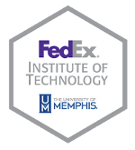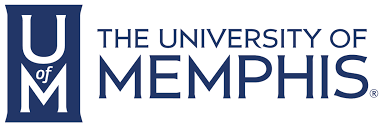Keynotes
Tuesday, October 16th, 9:00 - 10:30am
How We're Improving the Customer Experience through Software-Defined Networking
Jennifer Yates
AT&T Labs
Jen's biography:
Jennifer Yates is an Assistant Vice President of Inventive Science at AT&T Labs, heading the Networking and Service Quality Management Research organization. Her team of researchers is focused on inventing, prototyping, and driving new technologies and analytics that enable new services, enhance customer network experience, drive new levels of Operational automation and address complex cross-layer issues across AT&T’s network. Partnering closely with academia, internal AT&T teams, and broader industry partners, her team's cutting-edge innovations are widely deployed and utilized across AT&T’s global networks and the broader industry. Jen received her Ph.D. from The University of Melbourne, and Bachelor of Engineering (Honours) and Bachelor of Science degrees from the University of Western Australia, Jen moved from her homeland of Australia to the United States in 1999 to pursue her career at AT&T. Jen has been honored with induction into the Women in Technology Institute Hall of Fame in 2016, the AT&T Fellow Award in 2012, the Science and Technology Medal in 2006, the Victorian Photonics Network Achievement Award in 2004, and was named a Top Young Innovator by MIT Technology Review in 2003. Jen holds over 30 patents for her groundbreaking research in networking.
Wednesday, October 17th, 9:00 - 10:30am
When Software Reliability Engineering Meets Artificial Intelligence
Michael R. Lyu
Professor and Chairman Computer Science & Engineering Department, The Chinese University of Hong Kong
Abstract:
“Software is eating the world, but A.I. is going to eat software.” We have already witnessed software engineering shaping every last facet of our 21st century existence. We currently see the coming of A.I. storms from the horizon. In this talk I will try to connect A.I. with Software Reliability Engineering (SRE). On one hand, A. I. techniques, empowered by data-driven machine learning algorithms, can enhance SRE tasks with new paradigms. On the other hand, SRE techniques are essential to modern A.I. applications. Regarding the first aspect, we have investigated on the design of novel A.I. approaches and machine learning techniques to facilitate three major phases in software reliability engineering: development, operation, and analysis. I will explain the challenges in each phase and describe our recently achieved methodologies. Regarding the second aspect, I will examine how the conventional SRE techniques, fault avoidance, fault removal, fault tolerance, and fault prediction, can be applied to A.I. software, and present some of our current findings. I will also discuss the ethical issues on A.I. applications, and address how we can attack these issues with SRE techniques.
Michael's biography:
Michael Rung-Tsong Lyu is a Professor and Chairman of Computer Science and Engineering Department at The Chinese University of Hong Kong. He worked at the Jet Propulsion Laboratory, the University of Iowa, Bellcore, and Bell Laboratories. His research interests include software reliability engineering, distributed systems, fault-tolerant computing, service computing, multimedia information retrieval, and machine learning. He has published 500 refereed journal and conference papers in these areas, which recorded 29,000 Google Scholar citations and h-index of 83. He served as an Associate Editor of IEEE Transactions on Reliability, IEEE Transactions on Knowledge and Data Engineering (TKDE), Journal of Information Science and Engineering, and IEEE Transactions on Services Computing. He is currently on the editorial boards of ACM Transactions on Software Engineering and Methodology (TOSEM), IEEE Access, and Software Testing, Verification and Reliability Journal (STVR). He was elected to IEEE Fellow (2004), AAAS Fellow (2007), Croucher Senior Research Fellow (2008), IEEE Reliability Society Engineer of the Year (2010), ACM Fellow (2015), and received the Overseas Outstanding Contribution Award from China Computer Federation in 2018. Prof. Lyu received his B.Sc. from National Taiwan University, his M.Sc. from University of California, Santa Barbara, and his Ph.D. in Computer Science from University of California, Los Angeles.









